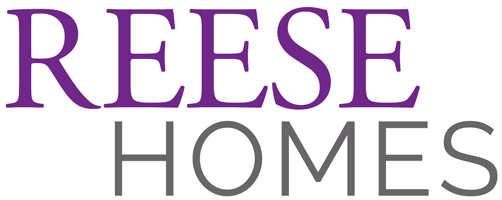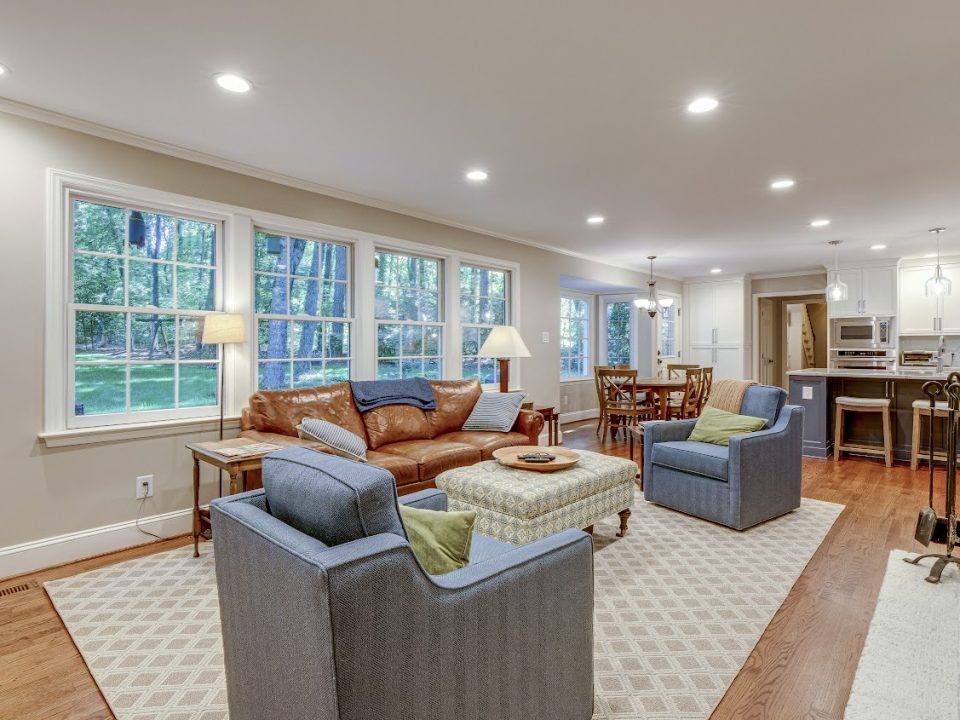
Luxury Redefined: Affordable Custom Homes with Smart Cost-Cutting Strategies
April 15, 2025
Your Guide to Planning a Major Home Remodel: Do’s and Don’ts for Success
April 15, 2025Property taxes can seem like a complex web of numbers and regulations, especially for those considering purchasing a new home. However, understanding these taxes is not just a matter of financial literacy, but a key to unlocking the full potential of homeownership. While property taxes can vary significantly by location, they serve a uniform purpose: to fund public services like schools, roads, and emergency responders. For prospective homeowners, these taxes become a critical piece of the homeownership puzzle, influencing everything from monthly mortgage payments to long-term financial stability. If you’re a first-time buyer—or even a seasoned homeowner—grasping how property taxes work and why they matter is the first step towards making informed decisions and taking control of your financial future.
In this blog post, our aim is to delve into the intricacies of property taxes, from their calculation to the factors that influence them, and how they can change over time. We want to show you that while taxes may appear daunting initially, a little knowledge can go a long way in helping you budget effectively, evaluate different properties, and plan for the future. Our ultimate goal is to equip you with the knowledge and confidence to pursue your dream home, whether it’s one of our Reese Homes or a resale property in your favorite neighborhood.
By the end of this guide, you’ll have a firm grasp of what to expect from property taxes and how they intersect with your overall financial plan. You’ll be empowered to ask the right questions, negotiate wisely, and enjoy your new home without any unwelcome surprises. Let’s dive in!
1. The Basics of Property Taxes
Before you crunch any numbers, it helps to understand property taxes and why they exist. Property taxes are levies imposed by local governments—counties, cities, or municipalities—on real estate. They serve as one of the primary revenue streams for local public services. By paying property taxes, homeowners contribute to funding local schools, infrastructure, and emergency services such as police and fire departments.
Where Do Property Taxes Go?
Most jurisdictions allocate a large portion of property tax revenue toward education. Schools rely heavily on this funding to maintain buildings, hire qualified teachers, and provide student resources. Other areas that benefit from your tax dollars include:
- Road Maintenance: Pothole repairs, street lighting, and road expansions.
- Parks and Recreation: Local parks, recreational centers, and green spaces.
- Libraries: Collections, technology upgrades, and community programs.
Depending on your local government’s priorities, funds may also be used for garbage collection, public transit, and other community projects.
Why Are Property Taxes Important for Buyers?
When you buy a home, you’re not just purchasing a building or a piece of land but investing in a community. Property taxes directly impact the quality of local amenities and services. If the tax rate is high, it often correlates with well-funded schools and robust public resources. On the other hand, lower property tax rates might align with fewer community offerings or less frequently maintained infrastructure. Understanding this connection can make you feel more connected to your community, knowing that your contributions are shaping the environment around you.
For buyers, this also translates into budgeting considerations. If you compare two similar homes in different neighborhoods, the difference in property tax rates could sway your monthly costs by hundreds of dollars. Being aware of how taxes are determined and when they’re due will prepare you for the financial responsibilities of homeownership from the start.
2. How Property Taxes Are Calculated
It’s one thing to know what property taxes are used for, but it’s another to understand how they’re determined. The calculation can be complex, but most localities follow a similar formula:
Property Taxes=(Assessed Value of the Property1000)×Mill Rate\text{Property Taxes} = \left(\frac{\text{Assessed Value of the Property}}{1000}\right) \times \text{Mill Rate}Property Taxes=(1000Assessed Value of the Property)×Mill Rate
The two essential components here are the Assessed Value of your property and the Mill Rate (also known as the tax rate).
Assessed Value vs. Market Value
- Market Value: This is the price your home would likely fetch if it were put up for sale on the open market.
- Assessed Value: Determined by a local tax assessor, the assessed value is used specifically for taxation purposes. Depending on local regulations and assessment methods, it may be lower, equal to, or even higher than the market value.
Assessors periodically evaluate your property, considering size, location, age, and upgrades. They might conduct an on-site inspection or use recent sales data of comparable homes.
The Mill Rate (Tax Rate)
The mill rate represents the tax payable per $1,000 assessed value. For instance, if the mill rate in your county is 20, you’ll pay $20 in taxes for every $1,000 of your home’s assessed value. Therefore, even a small difference in mill rates can significantly affect your annual property tax bill.
Frequency of Assessments
Assessments typically occur once a year or every few years, depending on the jurisdiction. If you live in an area experiencing rapid development, your property’s assessed value could rise faster than anticipated. Meanwhile, older homes in slow-growth regions may see minimal changes in assessed values over time.
Understanding this calculation is crucial because property taxes can be one of homeowners’ most stable yet sizable ongoing expenses. If you’re considering a Reese Home, you’ll find that our “True Affordable Luxury” approach is designed to work in various locations. It helps you manage the purchase price and long-term costs like property taxes.
3. Factors That Influence Property Tax Rates
Why do two homes with similar prices in adjacent neighborhoods sometimes have vastly different property tax bills? The answer lies in the multiple elements that influence property tax rates. Knowing these factors is not just about being well-informed, but about being prepared to make a well-rounded decision when it comes to homeownership.
Local Government Budgets
Each city, county, or municipality sets property tax rates based on budget needs. Property tax rates may be higher to cover these costs if the locality invests heavily in infrastructure or has ambitious public projects. Conversely, areas with minimal services or lower budgetary needs might have lower rates.
Community Amenities
If a neighborhood has extensive community amenities—like public parks, recreational centers, and libraries—expect that reflected in higher property taxes. These amenities require ongoing funds for upkeep, which translates into higher rates.
School District Funding
School districts typically derive a large portion of their budgets from property taxes. Neighborhoods served by top-tier public schools often have higher tax rates, thanks to the continuous need for funding teachers, facilities, and educational programs. While higher taxes can feel burdensome, many homeowners consider it a worthwhile investment if it aligns with quality education for their children and positively impacts property values.
State and County Regulations
Some states cap the annual increase in property tax rates, while others allow local governments to make significant adjustments. These regulations can be especially critical in states experiencing rapid property value growth. Additionally, certain states offer property tax exemptions or reductions for specific groups, such as seniors, veterans, or individuals with disabilities.
New Construction vs. Older Homes
New construction properties, like many Reese Homes, can sometimes qualify for temporary tax abatements or reduced assessments if the local government wants to encourage development. However, once these abatements expire, property taxes may rise. Older homes may have a more established tax history, making it easier to predict future expenses, but they may also be due for reassessment if significant renovations were made.
Awareness of these factors lets you weigh the pros and cons of various locations and home types. If you prioritize top-rated schools, you can expect to pay for that benefit through higher taxes. Conversely, if lower taxes are a priority, consider areas with fewer amenities or where new construction benefits could stabilize rates.
4. Planning for Property Taxes in Your Budget
Budgeting for a new home involves more than just principal and interest payments on a mortgage. If applicable, you’ll also need to factor in property taxes, homeowners insurance, and potential homeowners association (HOA) fees.
Escrow Accounts
Many lenders require borrowers to maintain an escrow account, which is used to collect property taxes and insurance premiums alongside monthly mortgage payments. The lender then pays these bills on your behalf when they’re due. For buyers, this approach simplifies the process by distributing large annual expenses into manageable monthly portions. However, be aware that escrow accounts might fluctuate year to year if property taxes or insurance premiums rise.
Estimating Future Increases
Property taxes seldom remain static. As home values and local budgets grow, taxes also tend to rise. It’s wise to research the area’s historical tax trends. Has the mill rate increased significantly in the past five years? Are there any upcoming municipal projects that could drive rates higher? Understanding these factors will help you plan for the long term so you’re not caught off guard by sudden hikes.
Utilizing Tax Exemptions or Credits
Depending on your eligibility, you might qualify for exemptions or credits. Common scenarios include:
- Homestead Exemptions: Primary residents may qualify for reduced property taxes.
- Senior or Veteran Exemptions: Retirees and veterans often benefit from partial or full exemptions.
- Income-Based Programs: Some localities offer property tax relief to households below certain income thresholds.
Check your local municipality’s website or consult a tax professional to determine if you meet any requirements. Taking advantage of these programs can significantly lower your annual burden.
Reevaluating the Investment
For many, property ownership isn’t just about having a place to live; it’s an investment strategy. Property taxes affect the total cost of ownership and can also impact the potential resale value. A home in a high-tax district with excellent public amenities and schools could command higher market prices. Meanwhile, properties in low-tax regions might be attractive for retirees or budget-conscious families, but they may not appreciate their value as quickly.
Ultimately, balancing your monthly budget with potential long-term gains is essential. Many buyers find that the peace of mind from living in a well-funded community outweighs paying higher taxes, especially if quality schools and robust services are a priority.
5. Strategies for Managing and Appealing Property Taxes
Even the most prepared homeowner might experience sticker shock when a new property tax bill arrives—especially if the assessed value spikes unexpectedly. In these situations, understanding your options can save you money and frustration.
Periodic Property Assessment Reviews
You can request a review if you believe your home’s assessed value is inaccurately high. Most local tax authorities allow homeowners to contest the assessment. Before filing any paperwork, gather evidence, such as recent sales data of comparable properties or any home appraisals you’ve done. Having concrete documentation increases your chances of a successful appeal.
Home Improvements: Proceed with Caution
While renovations like adding a bathroom or finishing a basement can boost your home’s market value, they can also increase your assessed value. If you want to minimize tax hikes, weigh the long-term benefits of home improvements against the potential for a larger property tax bill.
Stay Informed on Local Developments
Attend city council meetings or follow local news to stay informed on any proposed changes to tax rates or school district funding. Public hearings often precede major tax rate adjustments, giving you time to adjust your budget or actively participate in community discussions.
Work with Professionals
If navigating property taxes feels overwhelming, consider consulting with a real estate attorney or a property tax advisor. Professionals can guide you through the appeals process, help identify applicable exemptions, and offer insights into local tax trends. This expert input is especially valuable for higher-priced properties or complex cases involving multiple parcels of land.
Plan for the Future
If you anticipate significant life changes—such as welcoming new family members, retiring, or relocating—take a proactive approach to property taxes. For instance, if you plan to live in your home long-term, an annual budget that accounts for incremental tax increases will help you manage financial stress. If you foresee moving in a few years, pay close attention to how property tax trends could affect your home’s market value and desirability.
Property taxes might seem daunting when buying a home, but with the right knowledge and preparation, they become far more manageable. From understanding the basics of how local governments use your taxes to decoding the nitty-gritty of assessed values and mill rates, you now have the tools to confidently approach this topic. Remember to look into special exemptions, monitor local budget decisions, and remain vigilant about your home’s assessed value changes.
While property taxes are often one of the largest ongoing homeownership expenses, they also play a crucial role in maintaining the quality of your community—funding everything from schools and libraries to roads and emergency services. Whether you’re eyeing a new build from Reese Homes—where our commitment to “True Affordable Luxury” ensures you get the most out of every dollar—or a charming older property in an established neighborhood, being proactive about property taxes will keep your finances stable and your stress levels low.
When you factor property taxes into your overall homebuying strategy, you empower yourself to make choices that align with your lifestyle, budget, and long-term goals. Here’s to finding that perfect home and settling into a supportive, thriving community—armed with the knowledge to handle property taxes like a pro.

Reese Homes, the award-winning home builder, is passionately devoted to enriching the lives of our clients through the highest quality construction and architectural design. We work hand-in-hand with you and our skilled team to create a partnership that guarantees your home truly expresses your unique personal style.




